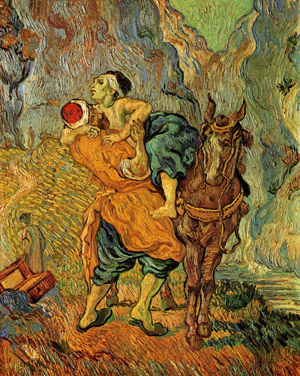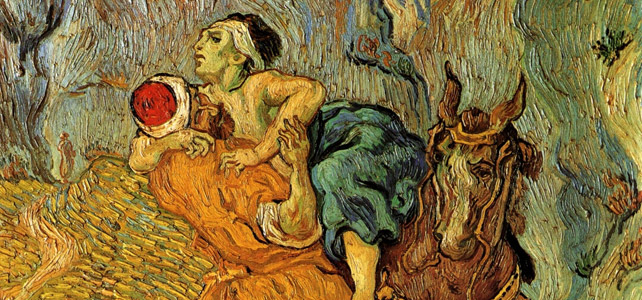Originally published in the Catholic Times
Sunday’s readings from Deuteronomy and from Luke emphasize two things: God’s law is the law of love, and it resides deep within each of us, as close as our mouths and our hearts. The Old Testament reading is taken from the end of Moses’ speech to the Israelites who had completed the long wanderings in the desert and were on the brink of entering the Promised Land.
Moses had recapped the struggles of their journey, told them blessings come from their curse, and that God would gather them back from the nations where they were scattered. The command Moses gave to the people, to turn back to God with their entire being, was attainable. Unlike Gilgamesh, the hero of the ancient Mesopotamian epic, who traveled to the ends of the earth, to the depths of the sea, and to the heavens, in search of the secrets of the gods, the Israelites had God’s word on their lips and in their hearts. They had only to obey it.
 In the gospel reading from Luke, when a scholar asks Jesus what he must do to attain eternal life, Jesus answers with a question: “What is written in the law?” The scholar replies that the law is to Love God with one’s whole being and to love one’s neighbor as one’s self. Jesus tells the scholar to go and live out the law.
In the gospel reading from Luke, when a scholar asks Jesus what he must do to attain eternal life, Jesus answers with a question: “What is written in the law?” The scholar replies that the law is to Love God with one’s whole being and to love one’s neighbor as one’s self. Jesus tells the scholar to go and live out the law.
Why did the scholar persist in questioning Jesus?Did he want to make sure he understood and would make no mistakes? Was he testing Jesus? Whatever the reason, he asked, “Who is my neighbor?” Jesus replied, as he often did, with a story. It is one we know well, the Good Samaritan. After a priest and a Levite both passed a victim lying half-dead on the road, a Samaritan came by and stopped to care for the man. After binding his wounds, the Samaritan took the man to a nearby inn, gave the innkeeper money to take care of the man and promised to pay if anything else was needed.
Jesus tells the scholar to follow the Samaritan’s example. Love others, all others, as yourself. When a story is so familiar, the temptation is not to listen closely or discover nuances that escaped us in the past. We assume we know what the story means. When the priest proclaims it at Mass, our mind might wander. After all, we know what happens. We know the moral of the story.
As I read the Old Testament reading and the gospel, one after another, a new twist to the story emerged. Yes, the people we expected to take care of the robbery victim didn’t come through. Our neighbor may be someone we don’t know, or maybe someone we do know, but despise. Our neighbor may be someone who belongs to a less than reputable group. Or a group that exists on the fringes of society.
All true. But that isn’t what I took from the readings today. What struck me was that the Samaritan simply stumbled on the poor victim. He didn’t go out of his way to find someone to help or a cause to contribute to. He was going about his ordinary routine, just walking down the road, and saw someone who needed help.
God and God’s word are in our hearts. Our God is intimate with us. We don’t have to go looking for the Divine One, nor do we have to be scholars to know what is expected of us. We don’t have to travel to missions or places of apparitions, or anywhere else. The call to love God and neighbor is as close as our home, office, or neighborhood. Maybe the priest and the Levite were busy thinking about other things. Maybe they were just put off by the messiness of the situation. They may have decided that the man beaten by robbers wasn’t worth their trouble. Maybe they were looking for something more impressive to do. Something that would boost their image.
We can’t help if we don’t see. We are called to notice. To be present to the moment, wherever it takes us, and to recognize God’s hurting beloved in it. We are called to be open to surprises. To embrace the unexpected, and what is most difficult, to see with fresh eyes, the routine that lulls us into complacency.

Speak Your Mind